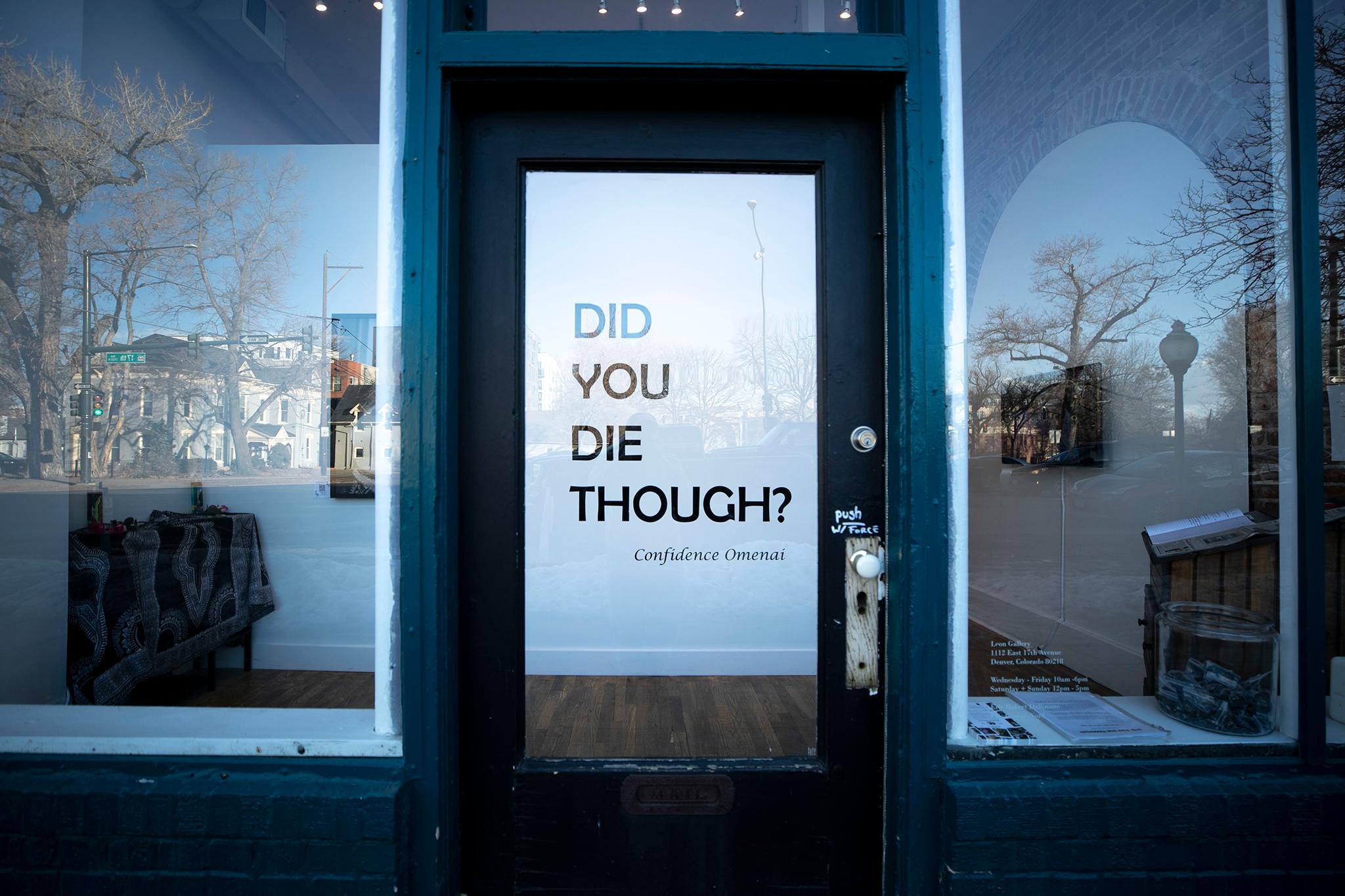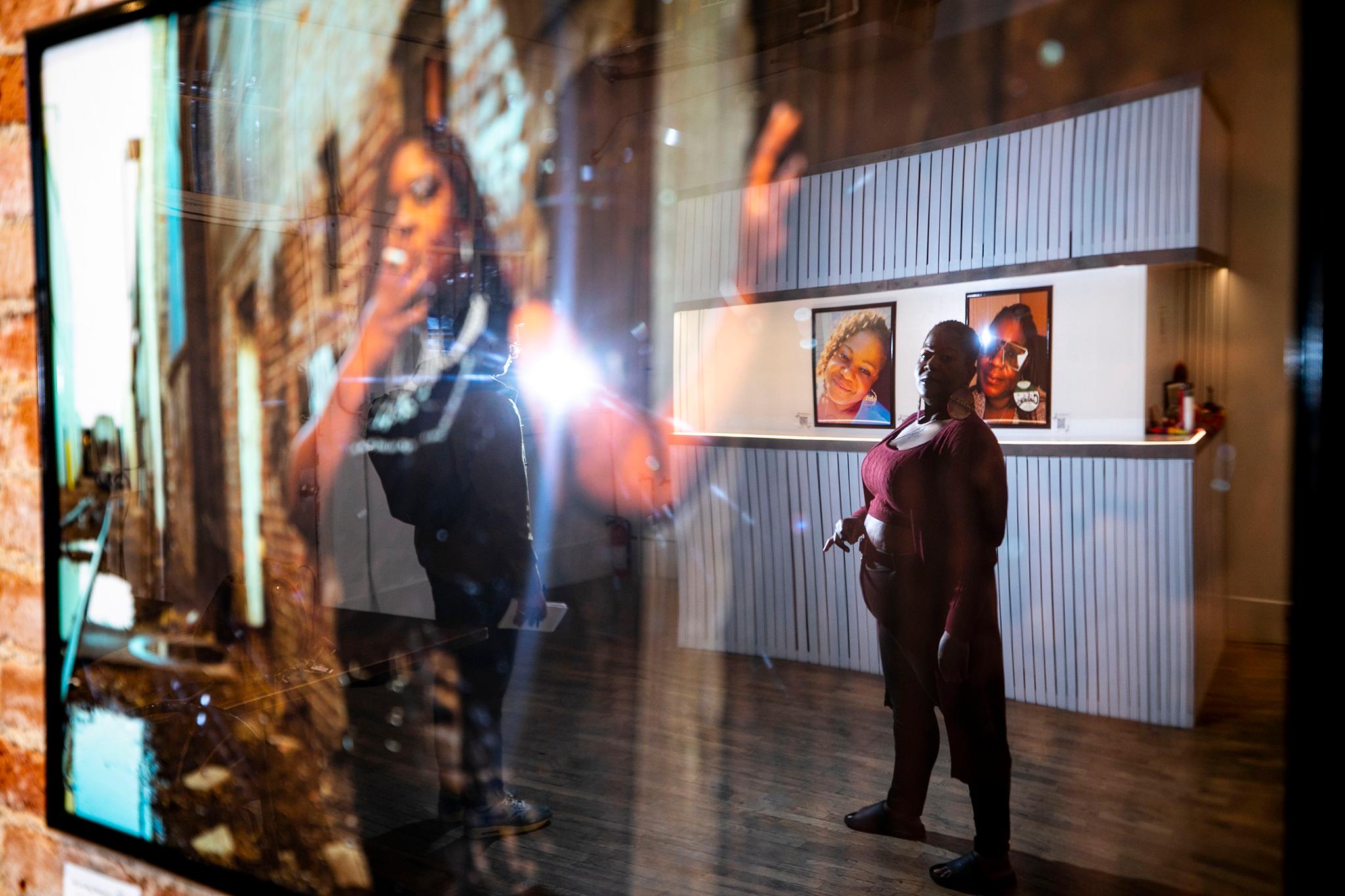Just below each self-portrait of Confidence Omenai's exhibition "Did You Die Though?" is a QR-Code that you have to get close enough to scan with your phone. Once you do, you'll hear her perform original poems, like "Planted," which is paired with a baby photo of Omenai.
"A grave and a garden look alike to the untrained eye. Baby, you decide," the Queer Nigerian-American multimedia artist, poet and playwright recites.
Wearing plum-colored dangly earrings with the words "Queen" emblazoned on both of them, Omenai talked through each portrait as versions of herself that have died away.
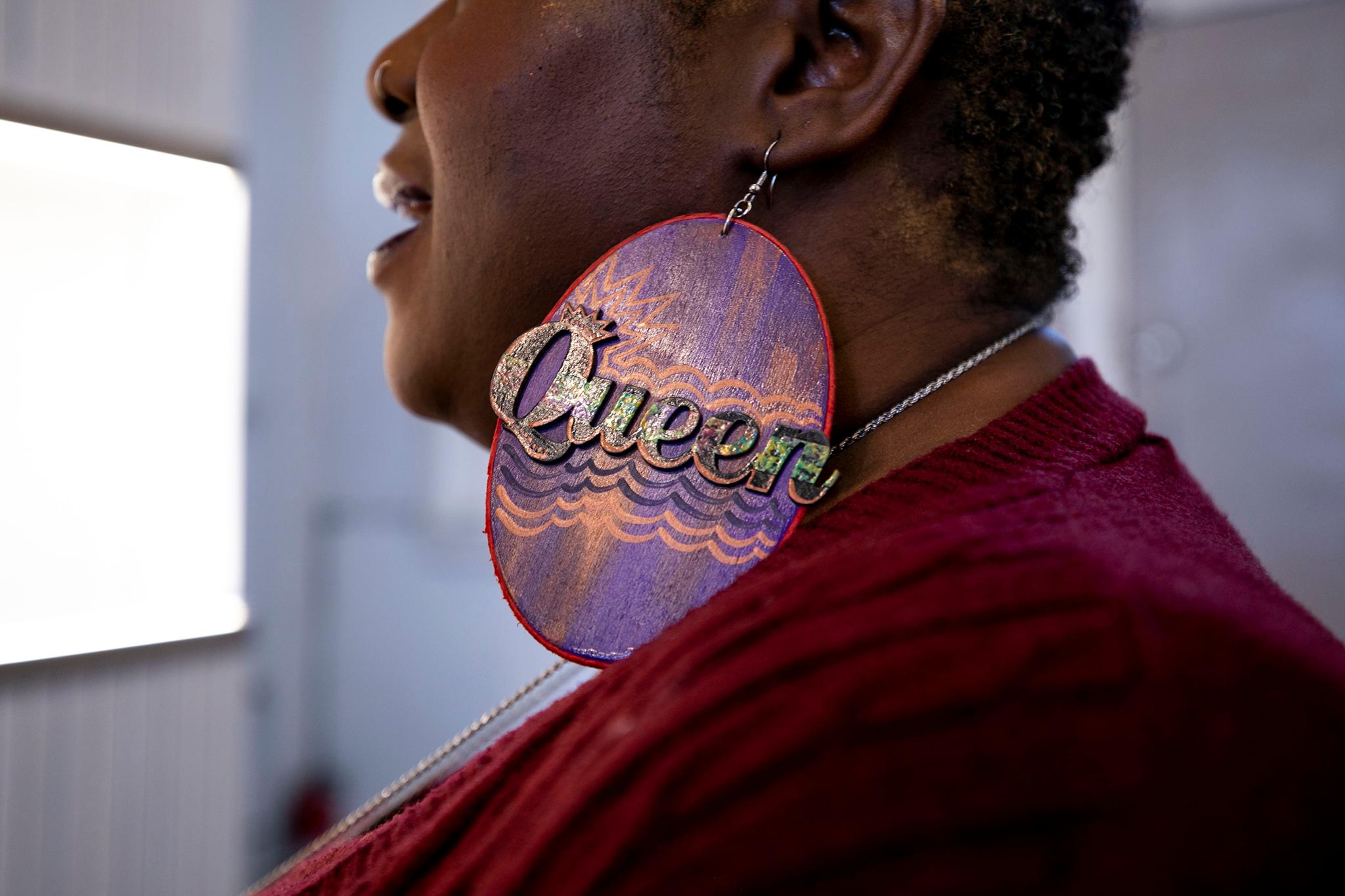
"This community needed an open space to acknowledge grief," she said.
"Did You Die Though?" is an exhibition, on display at Denver's Leon Gallery (1112 E. 17th Ave.), that compiles the history of a person who's experienced death enough times to have a better grasp on it than most.
It opened Jan. 28 and will be on display until March 4. On Feb. 22, the gallery will host a collective healing circle as part of the exhibition, meant to "create brave space for us to leave behind that which no longer serves our highest good."
A writing workshop and joint book signing is also scheduled for March 1.
Originally from Nigeria and Tulsa, Oklahoma, Omenai, 43, is an end-of-life doula. She's experienced in guiding others through their own death cycles and this exhibition is a reflection of her own. As a survivor of abuse and sexual assault from a early age, to the trauma of divorce and loss, Omenai said she understands that death is both an exit and an entrance into a refined version of oneself.
A board member of the Colorado Doula Project, the program director of Collective Healing Through Art, and a mother of five, she views her work as a blueprint for healing.
The poems, written and performed by Omenai, are deep reflections of the person you see in the accompanying portrait.
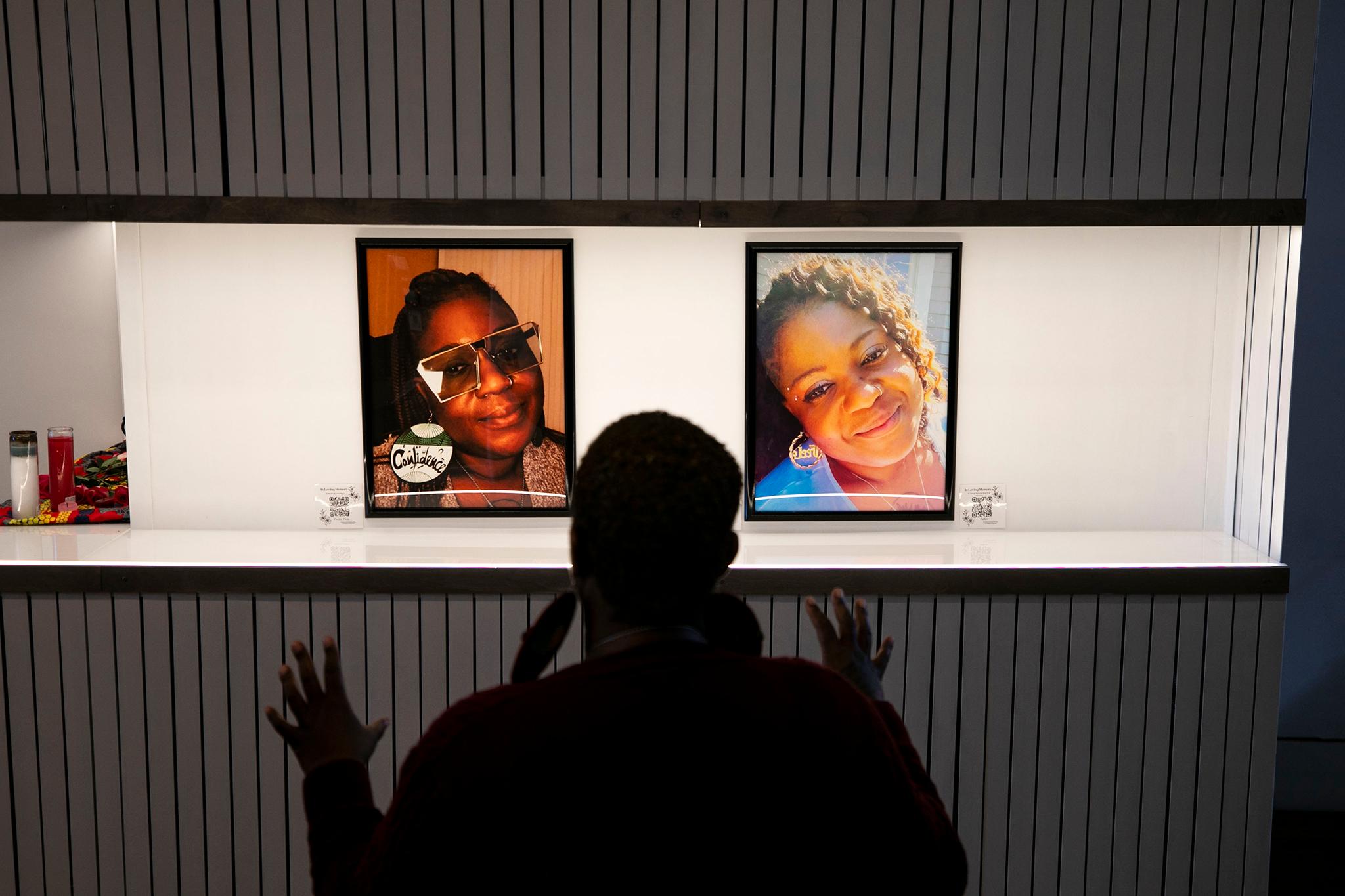
Omenai points out the frames of each picture around the room, making note of their thickness. "The frames change and represent the support systems I had in each of those phases of life," she explains.
She has lived in Denver for nine years, long enough to know just how much has changed in the city. Omenai paired her poem, "Palms of the Potter," with a portrait of herself stretched across a black leather couch inside of Five Points' coffee shop, Coffee at the Point, which closed at the beginning of the year.
"I remember when this picture was taken, I was looking out and thinking, 'How much of this place will be gone?'" she said.
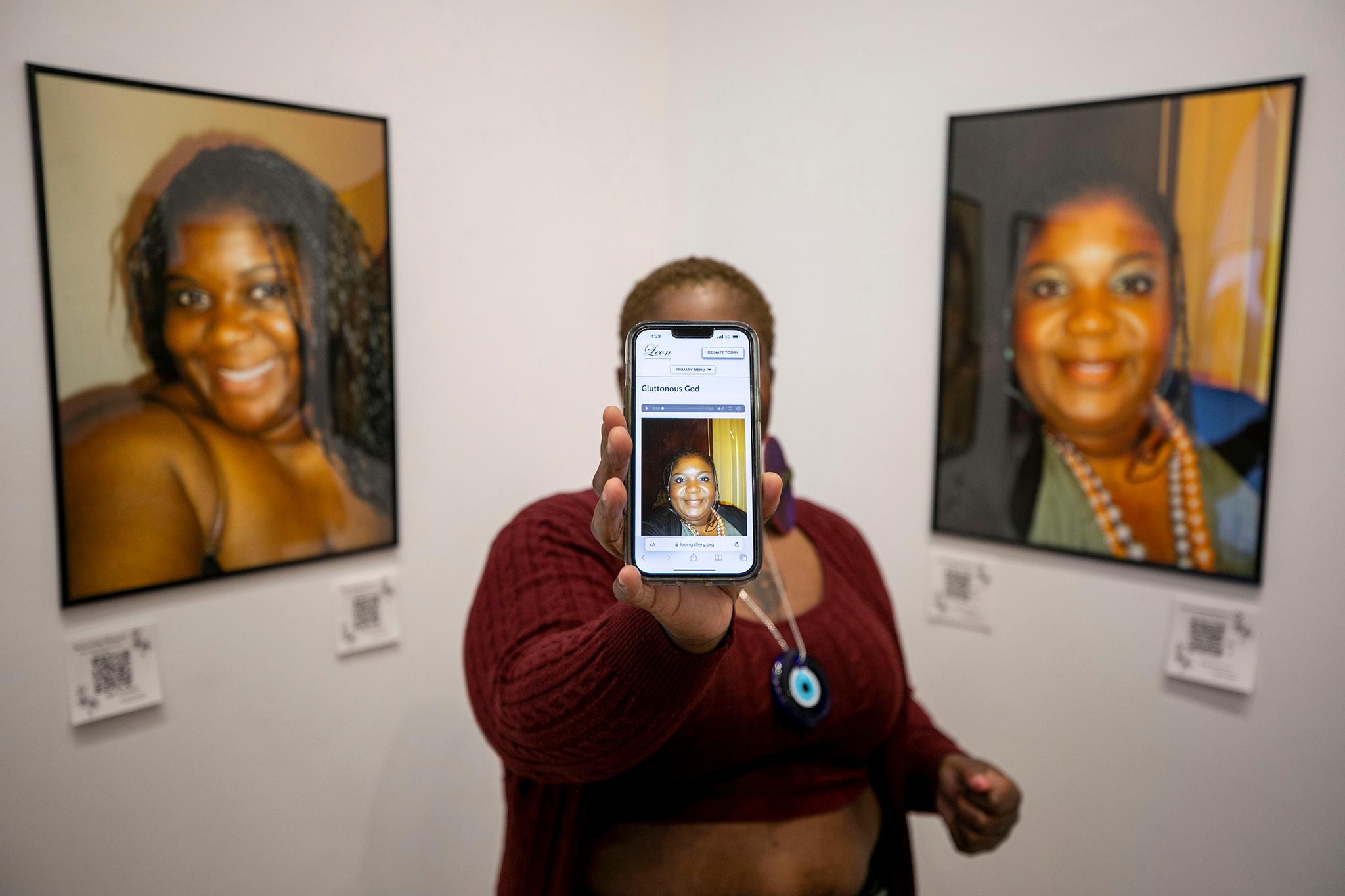
"You have to do the death work. Death work is the s*** people don't want to do. It's about being honest about their mistakes," she said.
The gallery most recently hosted a curated story time led by Omenai that offered participants an opportunity to honor the memory of their loved ones. In it, she witnessed what she called intergenerational healing and realized the need for more spaces to discuss how they are actively grieving.
"I keep getting up because I embrace death," she said. "Now I look death in the face, and laugh."
